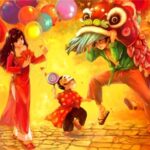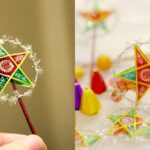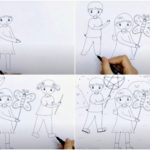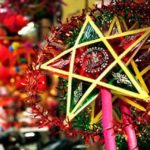Traditional games played during the Mid-Autumn Festival not only create a joyful atmosphere but also help children understand the origin and profound humanitarian meaning of this holiday. Here are some folk games that parents can organize for their children to enjoy during the Mid-Autumn Festival.
1 Lion Dance
The lion dance is a familiar feature of the Mid-Autumn Festival. When the drums beat, the colorful lions will dance energetically to liven up the festive atmosphere of the full-moon night.
As soon as they see the lions dancing, children will excitedly run after them. The lion dance is perhaps the most entertaining folk game played during the Mid-Autumn Festival in any region.
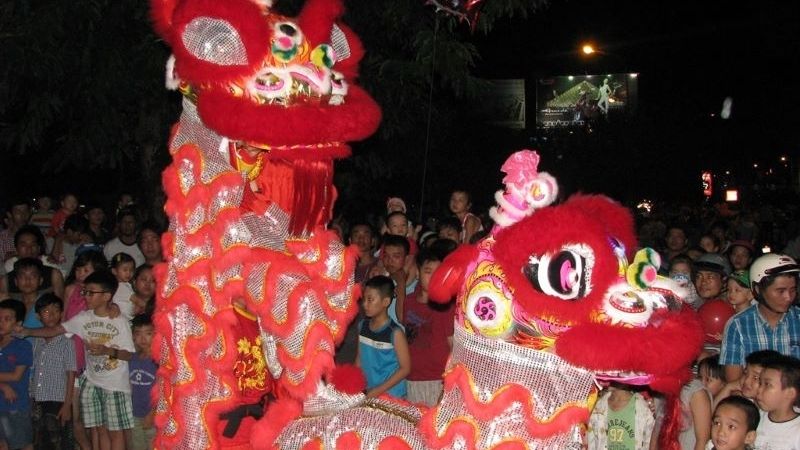 Lion Dance
Lion Dance
2 Parade of Star Lanterns
The five-pointed star lanterns are handcrafted from familiar materials such as bamboo and paper. Parents and children carry these star lanterns, walking through the villages and neighborhoods while singing the song “Parade of Star Lanterns”.
In some places, there are also competitions to make large-sized star lanterns, decorated with various patterns to enhance the joyful and exciting atmosphere of the Mid-Autumn Festival.
 Parade of Star Lanterns
Parade of Star Lanterns
3 Grapefruit Seed Firecrackers
This folk game has been played during the Mid-Autumn Festival for a long time and is still popular today. As the Mid-Autumn Festival coincides with the grapefruit season, rural children often take advantage of grapefruit seeds, stringing them together and then drying them.
On the night of the festival, they bring out these strings of seeds and burn them. The seeds pop and crackle like firecrackers, filling the air with the refreshing scent of grapefruit oil, creating a joyful and festive atmosphere.
 Grapefruit Seed Firecrackers
Grapefruit Seed Firecrackers
4 Dragon Tail
Dragon Tail is a folk game often played during the Mid-Autumn Festival. About 5-6 children can play, with one child acting as the “master” and sitting in one place, while the others form a line by holding onto each other’s waists.
As they move forward, they chant, “Dragon tail up to the clouds. There’s a swaying tree. There’s a house with soldiers. Is the master home?” If the master answers “no,” they continue on their way. If the master says “yes”, the children ask: “Which part do you want?” The master can then choose, for example, “I want the middle or the end.” After that, the group runs while the master stands up and chases after them, trying to touch the chosen part. If the master succeeds, the child who was caught becomes the new master, and the game starts over.
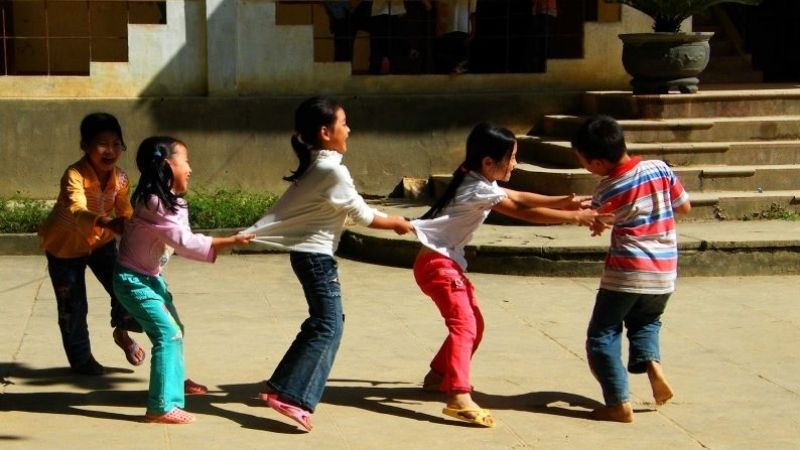 Dragon Tail
Dragon Tail
5 Blindfold Pot Smashing
This folk game is also organized in some localities during the Mid-Autumn Festival and can be played by both adults and children.
Here are the rules: The father or mother will be blindfolded and piggyback their child. The child on the parent’s back will guide them to walk towards a clay pot or a stuffed animal and smash it with a stick until it breaks.
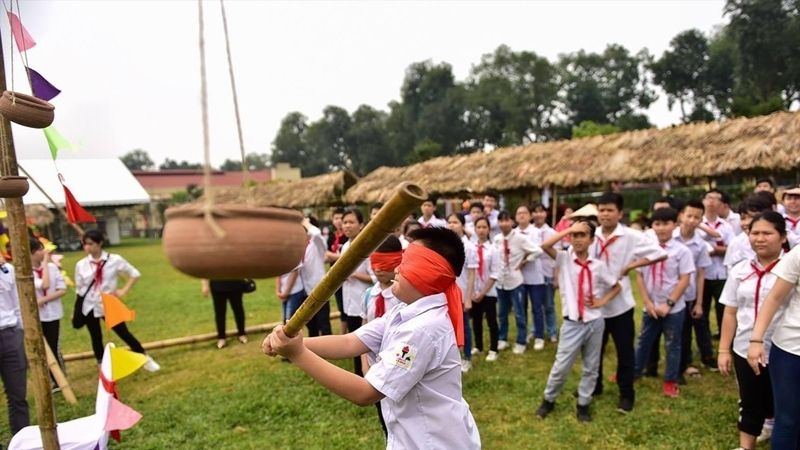 Blindfold Pot Smashing
Blindfold Pot Smashing
6 Cat and Mouse
This is an interesting folk game that mothers can organize for their children to play with their friends during the Mid-Autumn Festival. About 4-5 children can play, with one child being the mouse and the others sitting in a circle, acting as cats, with their hands behind their backs to catch the “prey”.
The child playing the mouse will hold a cloth and run outside the circle, dropping it on one of the “cats” without them knowing. If the “mouse” runs a full circle and the “cats” still haven’t noticed, the “mouse” can hit the “cats” on the back or shoulders with the cloth. The “cat” who is hit must stand up and run around to avoid being hit again, and then sit back down in their original place.
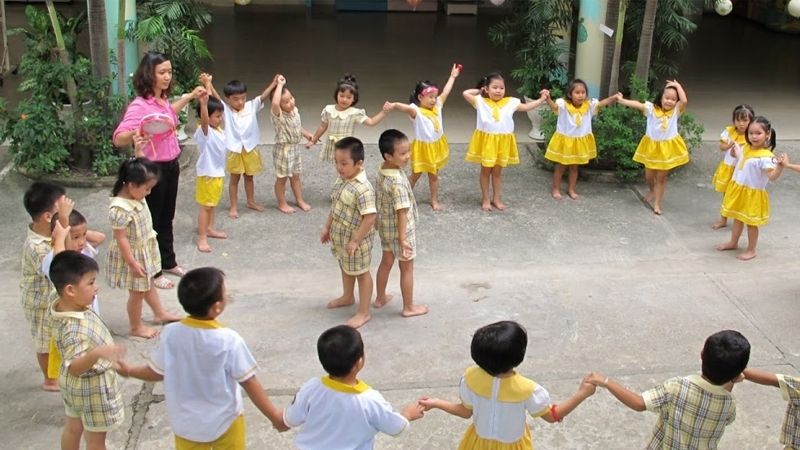 Cat and Mouse
Cat and Mouse
7 Taro Leaf Game
This folk game is quite popular and has no limit on the number of players. Each player sits in a circle and covers their hands with their palms facing down.
One representative starts by saying “Taro leaf” and places their hand on top of everyone else’s hands. At this point, the other players simultaneously turn their palms face up.
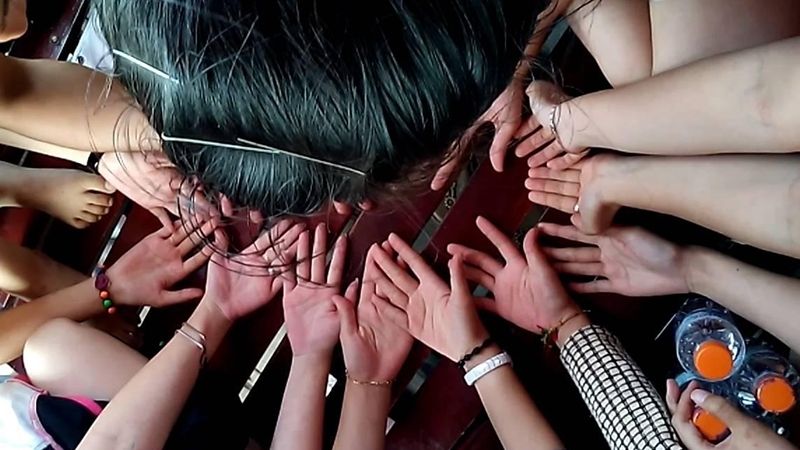 Taro Leaf Game
Taro Leaf Game
The representative then sings:
“Twelve whirlwinds
One wears a white shirt
One wears a black shirt
One carries a lantern
One holds a blowpipe
Blow in and out
Someone falls into the well
Someone falls into the mud
Oh dear, oh dear!”
At the end of the song, the representative places their hand on one of the players’ hands, and that player must quickly turn their palm face down or be penalized.
8 Train Ride
This is a group game suitable for children to play in class or with friends. The players stand in a straight line, with the person behind placing their hands on the shoulders of the person in front to form a “train”. The leader at the front runs while giving commands such as “Train going uphill” or “Train going downhill”. The entire “train” runs according to the leader’s commands while singing a children’s song.
When they hear the command “Train going uphill,” everyone runs slowly, tiptoeing and running on their toes. When they hear “Train going downhill,” they run slowly on their heels.
As they run, they sing:
Going to the bridge, going to the shop
Selling piglets
Buying a pot
For cooking
Buying a watermelon
To give to grandparents
Buying a flock of chickens
To feed them grains
Buying a comb
Buying hair clips
Go fast, come back fast
Before the sky gets dark.
During the game, if anyone sings softly or does not follow the running commands correctly, the entire “train” will be penalized (the form of the penalty can be decided by the group).
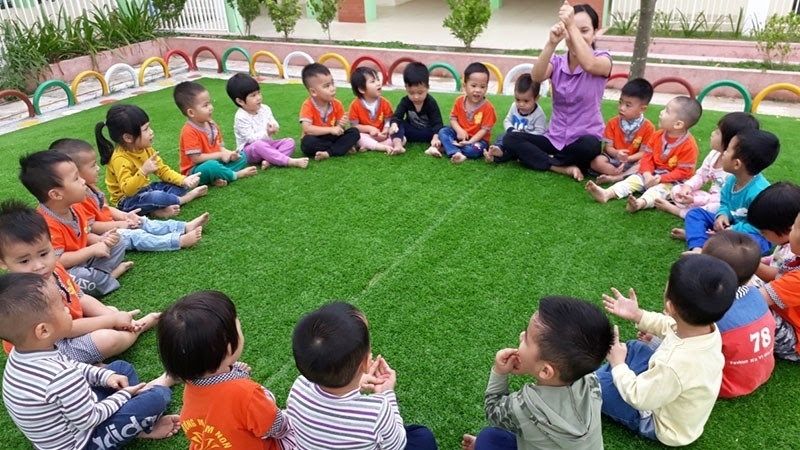 Train Ride
Train Ride
9 Blow Out the Candle
All players stand in a circle, and two representatives stand in the middle, each holding a lit candle. At the signal, the two representatives will play a game of tag while trying to hide their candles behind their backs and blow out their opponent’s candle. The first person to have their candle blown out loses. The game can be played in pairs, with the losers competing in a final round.
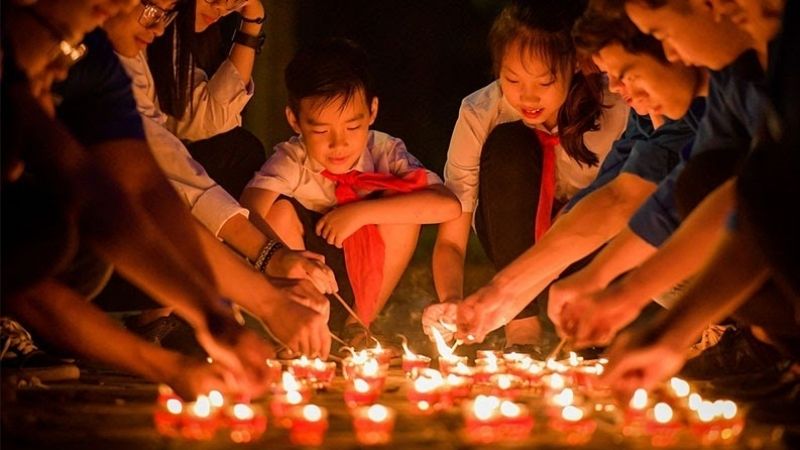 Blow Out the Candle
Blow Out the Candle
10 How Far is the Road
This is a group game for children to play with their friends during the Mid-Autumn Festival. The game is usually played at night, but it can also be played during the day with a flag replacing the flashlight.
The distance between the leader and the players is predetermined. The leader stands in place, holding a flashlight, and turns it on and off. The players estimate the distance from their position to the flashlight.
The leader can turn the flashlight on and off multiple times, and the players can make multiple estimates: the number of meters for the first, second, etc., and write them down on a piece of paper to be submitted to the leader.
The player with the closest estimate to the actual distance wins.
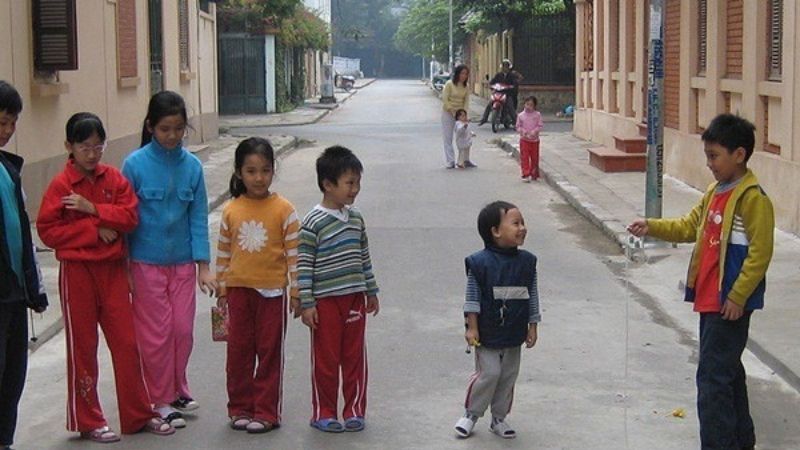 How Far is the Road
How Far is the Road
These are some folk games that parents can organize for their children during the Mid-Autumn Festival. This year, choose one of these games for your children to participate in, so they have a truly meaningful Mid-Autumn Festival!
The Mystical Lion Dance: Unveiling the Ancient Mid-Autumn Tradition
Lion dance is a familiar sight during festive occasions and grand openings, with its vibrant and energetic performances. Today, we delve into the rich history and cultural significance of this traditional dance, particularly its role in the Mid-Autumn Festival celebrations. Join us as we explore the origins and symbolism of the lion dance and discover why it has become an integral part of Lunar Mid-Autumn Festival traditions.
The Mid-Autumn Festival Toy Market Heats Up with ‘Mini’ Traditional Toys
The vibrant display of traditional folk toys during the Mid-Autumn Festival is a well-known delight. What is new and exciting is the growing trend of artisans crafting unique miniature versions of these beloved toys. These tiny creations are a delightful twist on the classic, offering a fresh and intriguing take on a beloved tradition.
The Magic of Mid-Autumn Festival Lanterns: Unveiling the Traditions and Symbolism
The Mid-Autumn Festival, with its vibrant lantern traditions, evokes cherished childhood memories for many. The festival’s iconic lanterns, such as the Star Lantern and the Military Lantern, are more than just illuminated decorations; they symbolize wishes, aspirations, and a sense of cultural heritage.
























